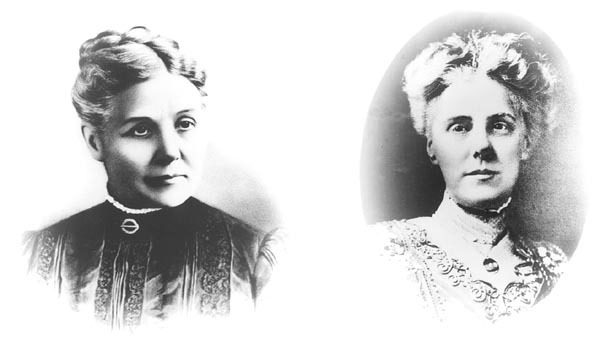 I’ve just been reading What Determines Influence? at my friend, Saul Fleischman’s blog.
I’ve just been reading What Determines Influence? at my friend, Saul Fleischman’s blog.
It’s a good question!
In terms of Social Media measurement 2 sites are bandied around a lot:
http://klout.com and http://peerindex.net , each measuring influence differently.
I suspect, past performance being a true measure, these sites will give way to a bigger and better sites in a 3/4 year time frame so they must keep reinventing to stay ahead of the game.
Look me up at http://klout.com/aypee and at http://www.peerindex.net/aypee
According to Klout’s measurements:
Arthur Partridge is an Explorer:
“You actively engage in the social web, constantly trying out new ways to interact and network. You're exploring the ecosystem and making it work for you. Your level of activity and engagement shows that you "get it", we predict you'll be moving up”
I would say that is accurate but my score floats around the 70 mark (– 69 today –) so there is little movement but I do get the significance of Social Media.
At Peerindex, I am measured by my topics and my sources and a finger print is produced to show my performance against 8 benchmarked topics and my Audience, Activity and Authority.
Both driven by what I say and when I say it and to whom but unless I change my topics the results will stay the same and will ultimately lower – so I must keep reinventing myself to stay ahead of the game
Social media is about Relationships and I agree with Saul’s statement
“In order to build accurate models that measure influence and help businesses understand who to interact with to improve their bottom line, we need to study and understand the relationships between people. In other words, who trusts who about what?”
This also stands true for personal interaction – it is about trust
 In December I went to see Thomas Power talk about Digital Coaching and his chosen words “Open, Random and Supportive” certainly provided clarity to me, not only about Social Media but about relationships themselves.
In December I went to see Thomas Power talk about Digital Coaching and his chosen words “Open, Random and Supportive” certainly provided clarity to me, not only about Social Media but about relationships themselves.
Have a look at your relationships to see which ones work and which ones don’t and then assess how “Open, Random and Supportive” you are being
both in your conversation on Social Media (the internet) and off (at home, work and in the real world).
What determines influence?
You do, by how you are being much more so than what you talking about.
True, what you talk about is important BUT if you don’t have the right state, it makes no difference – that is probably why the best politicians do not survive.
Who knows. The state that http://empireavenue.com is invoking in people may just be proving these points.
Sources Saul Fleishman http://osakabentures.com/category/english-blog-posts/
Thomas Power http://www.ecademy.com/account.php?id=8
Peerindex http://www.peerindex.net/aypee
Klout http://klout.com/aypee
![ghost-6-30-10[1] ghost-6-30-10[1]](https://blogger.googleusercontent.com/img/b/R29vZ2xl/AVvXsEhDpYDZ9e2V4UEFGAyMuyN3b7XRVAnNOWD7U3j7DjH61u5w73wG_LTgJKNoAMdwrEVkpHNdJDg-cpaOF9rxA2_62sa2IhCX68a-xz4ysijv1H_MmYbkYc-LnKhf0USq0X95gxVfj83s4Cs/?imgmax=800)



 A woman's husband had been slipping in and out of a coma for several months, yet she stayed by his bedside every single day. When he came to, he motioned for her to come nearer.
A woman's husband had been slipping in and out of a coma for several months, yet she stayed by his bedside every single day. When he came to, he motioned for her to come nearer. A hack golfer spends a day at a plush country club, playing golf and enjoying the luxury of a complimentary caddy.
A hack golfer spends a day at a plush country club, playing golf and enjoying the luxury of a complimentary caddy.  James Byron Dean
James Byron Dean





 When his waitress arrives, he orders elephant tail on rye. She calmly writes down his order and walks into the kitchen. Almost immediately the customer hears an explosion of voices from the kitchen. The restaurant owner storms out to the customer's table and slaps down five $100 bills.
When his waitress arrives, he orders elephant tail on rye. She calmly writes down his order and walks into the kitchen. Almost immediately the customer hears an explosion of voices from the kitchen. The restaurant owner storms out to the customer's table and slaps down five $100 bills.  Meanwhile Julia Ward Howe, author of the “Battle Hymn of the Republic,” attempted to institute a national celebration of mothers that honoured women’s inclinations toward peace (rather than cleanliness). In 1872, she initiated and promoted a Mother’s Day for Peace, to be held on June 2, which was celebrated the following year by women in 18 cities across America. The holiday continued to be honoured by Bostonian women for another decade, but eventually phased out after Howe stopped underwriting the cost of the celebrations.
Meanwhile Julia Ward Howe, author of the “Battle Hymn of the Republic,” attempted to institute a national celebration of mothers that honoured women’s inclinations toward peace (rather than cleanliness). In 1872, she initiated and promoted a Mother’s Day for Peace, to be held on June 2, which was celebrated the following year by women in 18 cities across America. The holiday continued to be honoured by Bostonian women for another decade, but eventually phased out after Howe stopped underwriting the cost of the celebrations. 